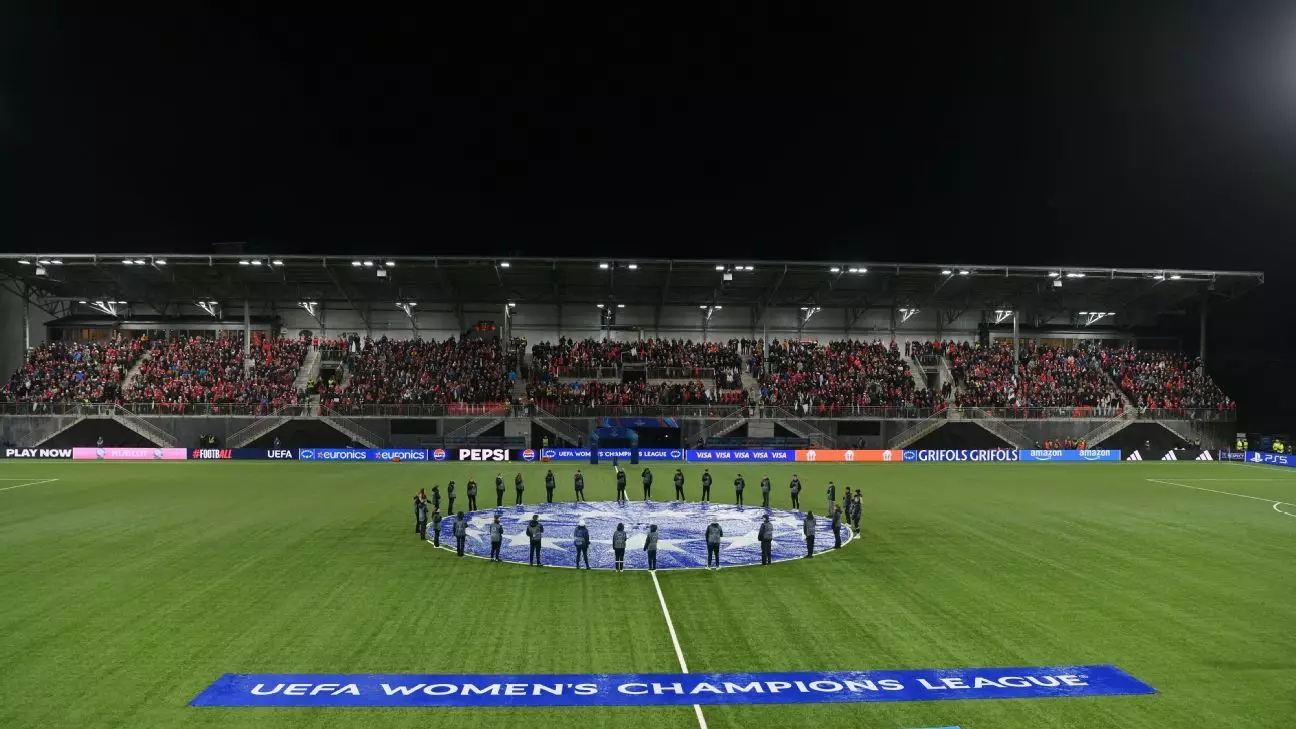This past Sunday, Norwegian football club SK Brann emerged victorious in a legal battle over free speech, as the Court of Arbitration for Sport (CAS) ruled against a fine levied by UEFA. This case, rooted in the fans’ provocative chants and banners reading “UEFA Mafia,” raises fundamental questions about the boundaries of expression in the world of sports. Initially fined €5,000 for these expressions during a women’s Champions League matchup, Brann’s persistence in defending its supporters’ right to voice dissent has ignited a broader discussion about freedom of speech in sports arenas.
Challenging Authority and Embracing Critique
Brann’s determination to appeal the UEFA’s ruling demonstrates that the club is not just defending its pocketbook but taking a stand against what it perceives as a monopolistic governance structure within European football. The CAS ruling, which largely upheld that UEFA must respect freedom of expression as a human right, is not merely a legal victory; it serves as a clarion call for other clubs facing similar struggles. The president of Brann, Aslak Sverdrup, aptly notes, “In a world where freedom of speech is under attack, this is an important and correct ruling.” This sentiment resonates deeply in current global discourses where power dynamics often silence dissenting voices.
Understanding the Context
UEFA’s crackdown on Brann can be seen as an attempt to maintain a certain decorum in the sport, which the organization claims is necessary for public safety and order. However, the crux of the matter lies in discerning between legitimate safety concerns and attempting to censor criticism. Brann has successfully framed the “UEFA Mafia” remark as a form of satire rather than a mere insult. This recontextualization is crucial; it blurs the lines between criticism and offense, raising essential inquiries about the role of art, humor, and critique in spaces traditionally governed by strict authority.
Implications for the Future of Football
Brann’s victory is not merely a cause for celebration within its own ranks but has significant implications for all European football clubs. The decision sends a powerful message that clubs and their supporters have a voice capable of challenging the status quo. As more fans become engaged with political and social issues, the landscape of football could evolve into a more supportive environment for free speech. Furthermore, it positions clubs not just as sports entities but as cultural institutions, playmakers in dialogues about governance, accountability, and community.
The Divided Response
UEFA, while acknowledging the CAS ruling, maintains its stance, asserting that freedom of speech does not permit fans to make offensive statements. The governing body emphasizes its role in ensuring safety and order during matches, reflecting an ongoing tension between regulatory authority and the grassroots expressions of fans. This discord underscores an essential debate; can authority coexist with freedom, or does strict governance inevitably stifle dissent?
Brann’s recent triumph encourages a reexamination of the balance between regulation and freedom. The outcome signals that there is indeed space within football for critique, provided it is framed within the accepted parameters of social commentary. This pivotal ruling may inspire a new era of dialogue and expression, where clubs, fans, and governing bodies must learn to navigate a rapidly evolving landscape of rights and responsibilities in sport.

